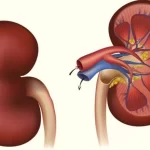Control creatinine levels
Creatinine is a waste product produced by the muscles that are filtered out of the blood by the kidneys. Elevated levels of creatinine can indicate kidney problems or other underlying health conditions. Here are some ways to help control creatinine levels:
- Maintain a healthy diet: Eating a diet that is low in salt and high in fruits, vegetables, and whole grains can help maintain healthy creatinine levels.
- Stay hydrated: Drinking enough water can help flush out excess creatinine and other waste products from the body.
- Exercise regularly: Regular exercise can help maintain muscle mass, which can help keep control creatinine levels in check.
- Avoid certain medications: Some medications, such as nonsteroidal anti-inflammatory drugs (NSAIDs) and certain antibiotics, can increase creatinine levels. Talk to your doctor about alternative medications if you are taking this medication.
- Manage underlying health conditions: Chronic conditions such as diabetes and high blood pressure can affect kidney function and increase creatinine levels. By properly managing these conditions, you may be able to reduce your creatinine levels.
- Stop smoking: Smoking can damage the kidneys and increase creatinine levels. Quitting smoking can help reduce the risk of kidney damage and lower creatinine levels.
It’s important to remember that maintaining healthy creatinine levels requires a comprehensive approach that involves lifestyle changes, proper medication management, and regular monitoring by a healthcare professional.
What foods increase creatinine level
There is no specific food that has been shown to increase creatinine levels. Howeverdietarytain dietary effects affect kidney function and therefore creatinine levels. These include:
- High-protein diets: Consuming large amounts of protein, especially animal protein, can put extra strain on the kidneys and increase creatinine levels.
- High-salt diets: Consuming too much salt can lead to high blood pressure and damage the kidneys, potentially increasing creatinine levels.
- Dehydration: Not drinking enough water can reduce the amount of urine produced, leading to an increase in creatinine levels.
- Alcohol consumption: Excessive alcohol consumption can damage the kidneys and increase creatinine levels.
If you have kidney disease or any other underlying health condition that affects kidney function, it’s important to talk to your doctor about your dietary needs. They may recommend making certain changes to your diet to help manage your creatinine levels and maintain kidney health.
What is a good level of creatinine?
The normal range for creatinine levels in the blood varies depending on several factors, including age, sex, muscle mass, and overall health. However, in general, the following are considered normal creatinine levels:
- Adults: The normal range for creatinine levels in adult males is 0.6 to 1.2 milligrams per deciliter (mg/dL) and in adult females is 0.5 to 1.1 mg/dL.
- Children: The normal range for creatinine levels in children varies based on age, but in general, levels should be lower in children compared to adults.
It’s important to note that normal creatinine levels can vary slightly between laboratories and may depend on the method used to measure creatinine. If you have any concerns about your creatinine levels, it’s best to discuss them with your doctor. They can help interpret your result conditions needing health conditions to need to be addressed.






